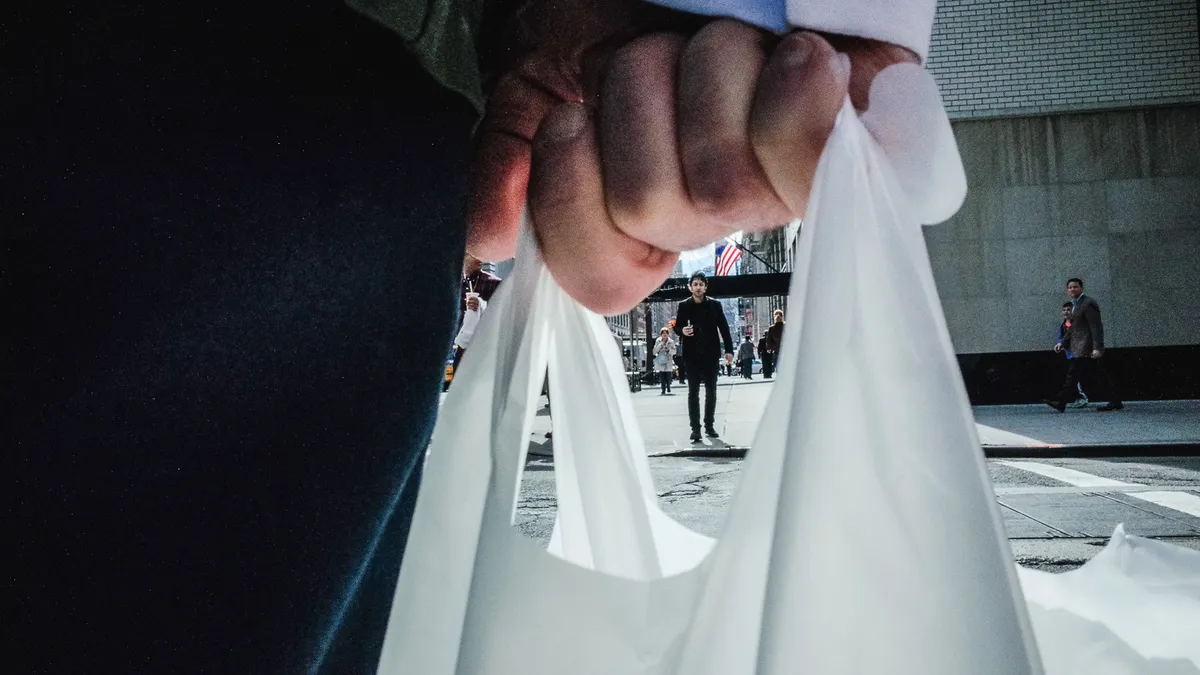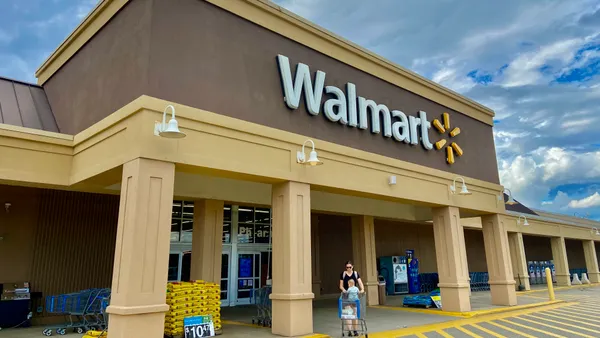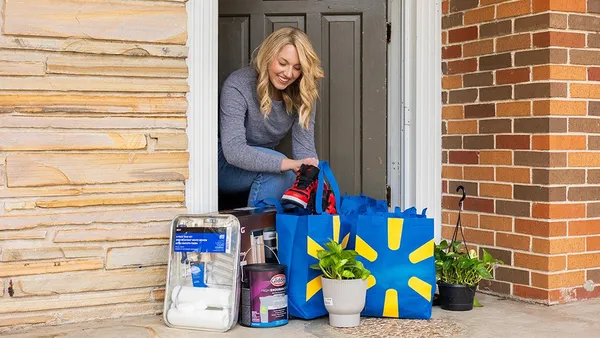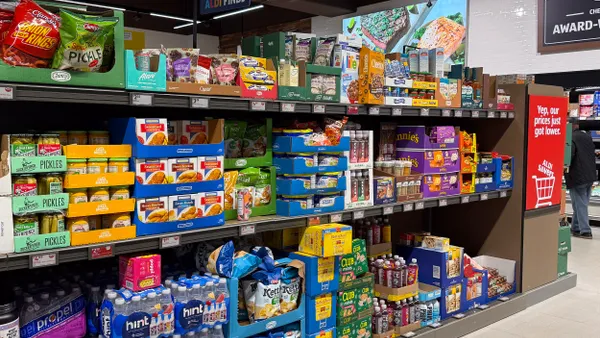Dive Brief:
- DeCicco & Sons Markets, a family-owned chain of grocers in New York, plans to eliminate single-use plastic bags in its six stores within the next 30 days, according to lohud.com. Last year, the company used a total of 22 million bags.
- The company will offer brown paper bags to consumers instead and encourage them to bring their own reusable bags. Customers who return to the store with their own bags get credit added to their total grocery bill.
- The grocer's decision to stop the use of plastic bags was due to its commitment to the environment but also to its community, the grocer's CEO, John DeCicco Jr. told lohud. In addition to plastic bag reduction, the company has added a variety of green initiatives to its stores including LED lighting, installation of rooftop solar panels, natural refrigerants and advanced environmental controls.
Dive Insight:
Specialty grocers and independents have gradually phased out plastic bags over the past decade or so, but government regulations, growing anti-plastic sentiment among consumers and Kroger's recent announcement that it would phase out single-use plastic bags by 2025 may accelerate these initiatives in the coming years.
Although a fairly new concept in the U.S., many countries including the United Kingdom, Australia, and China have enforced a nationwide ban or fee on plastic bags. Working towards that goal, many U.S. cities have implemented a ban on plastic bags including San Francisco, Seattle, Chicago, Austin and Los Angeles. Although not a complete ban, some cities have implemented a fee for the use of plastic bags, including Boulder, Colo.; Portland, Maine; Washington, D.C., and New York City.
In 2014, California became the first state to enact bag-ban legislation. The ban finally took effect in 2016 following a ballot vote in the November election, and required retailers to charge 10 cents for bag alternatives. Most recently, New York state governor, Andrew Cuomo introduced a bill that would ban all single-use plastic carryout bags at any point of sale in the entire state of New York.
Bans and fees on plastic bags aren't the only forces motivating retailers to phase out single-use plastic bags. Consumer awareness around plastic waste has grown, with many calling for a ban on not just bags but single-use straws, as well. Companies have responded in kind: Ikea has pledgedto do away with straws and other single-use plastics by 2020, while McDonald’s says it will test alternatives later this year.
According to Nielsen, millennials — the number-one target for most grocers right now — say sustainability is a shopping priority. To show the company cares about the environment, and consumer's sentiment around plastic waste, grocers take the extra step hoping to reap the benefits. But banning plastic bags isn't as easy for large grocers as it is for small ones like DeCicco & Sons. Kroger's phase-out will take seven years while DeCicco & Sons will take about 30 days.
Grocers may be concerned about consumer backlash in response to a plastic bag ban, but as grocers in California have found, people can adjust fairly quickly.
Ultimately, banning plastic bags in grocery stores is only a small step towards true sustainability. According to the U.N. Environment Programme, single-use plastic bags are one of the top five items encountered in coastline clean-ups. But their overall carbon footprint is fairly miniscule, according to The Berkley Science Review. Paper bags, on the other hand, must be reused four times to reduce its global warming potential and are more toxic to terrain and the marine environment than plastic bags.













